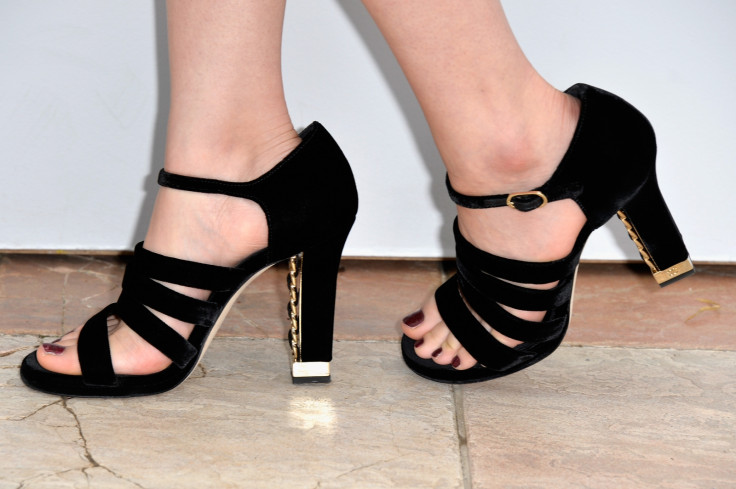Cannes 2015: High heels are the Achilles' heel of feminism

There is something inherently wrong about wearing a pair of shoes that make you want to cry. Crushed toes, blistered heels and popping veins like electrical wires across your feet, which are suspended almost vertically in a pair of 6in stilettos. And no longer can we choose to wear these crippling monstrosities, it is now the rule.
The Cannes Film Festival has never been progressive when it comes to women's rights, even if gender equality was a key theme in many of the films in this year's selection. For the first time in 28 years, the festival opened with a film by a female director. However, before the start of another screening, women not wearing heels were turned away.
Cannes 2015 should have been the year of the women. While 2012 heralded a new low for the film festival, with no female nominees for the prestigious Palme d'Or, 2015 is making history as Agnes Varda will become the first woman to win the honorary version of the award, something only previously given to Woody Allen, Clint Eastwood and Bernardo Bertolucci. That is a phenomenal achievement, one almost entirely surpassed by the high heel debacle.

At the debut of Carol, a lesbian romance celebrated for its female-majority cast and producers, female attendees were hawked over by security guards at the door and subsequently kicked out. It has even been reported by the Telegraph that a film producer who has had part of her left foot amputated was stopped for not wearing heels – despite missing her big toe and part of her foot.
And this is the 21<sup>st century. Previously considered insurmountable barriers for women have been broken and glass ceilings smashed, yet we are still fighting over what we can and cannot wear to an international film festival founded on creativity and free expression.
Successful actresses, female producers and directors who have worked against the odds in a male-dominated industry to get recognition are still forced to totter around on spikes in order to be deemed "acceptable". Frankly it is ridiculous.
Equal rights have not progressed as much as we would like to think. Wendy Constance, a children's author who attended Cannes in the 1970s, tweeted the festival had never been a shining example of equality. "Back in 1971 when I started work I asked for the rule about women not wearing trousers to be changed. It was. Forty-four years later," she wrote.
So why are high heels such a divisive issue? It is because they symbolise sexuality, femininity and elegance, and consequently, submissiveness. For some feminists, women wearing heels cannot be taken seriously. As Sandi Toksvig says in the anthology Fifty Shades Of Feminism, women "will never meet men on an equal footing... while they literally cannot stand up for themselves".
It is – or should be – a personal choice as to whether we wear heels or not. For some women, heels exude confidence and represent the ultimate in power-dressing. As was the case in Sex And The City, seeing Carrie Bradshaw and the gang stalking New York in stilettos glamorised the heel, cementing its association with wealth and success.
For far too long, women have been judged not on their personalities, abilities and achievements but on the length of their legs and the height of their heels. And it is because of this that high heels have gained the reputation of being confidence-boosting and a symbol of power. They supposedly increase status by repositioning the body – shifting the physical appearance of the legs, bottom and breasts, aiding sexual objectification.
Despite the great strides made in gender equality, shoes are still the Achilles' heel of feminism. Even the most left-leaning newspapers, alongside progressive articles about women in the workplace, continue to publish stories examining whether taping your toes together makes it easier to cram your feet into confidence-boosting pointed heels. Surely there is nothing confidence-boosting about immobility and bleeding feet.
© Copyright IBTimes 2025. All rights reserved.






















